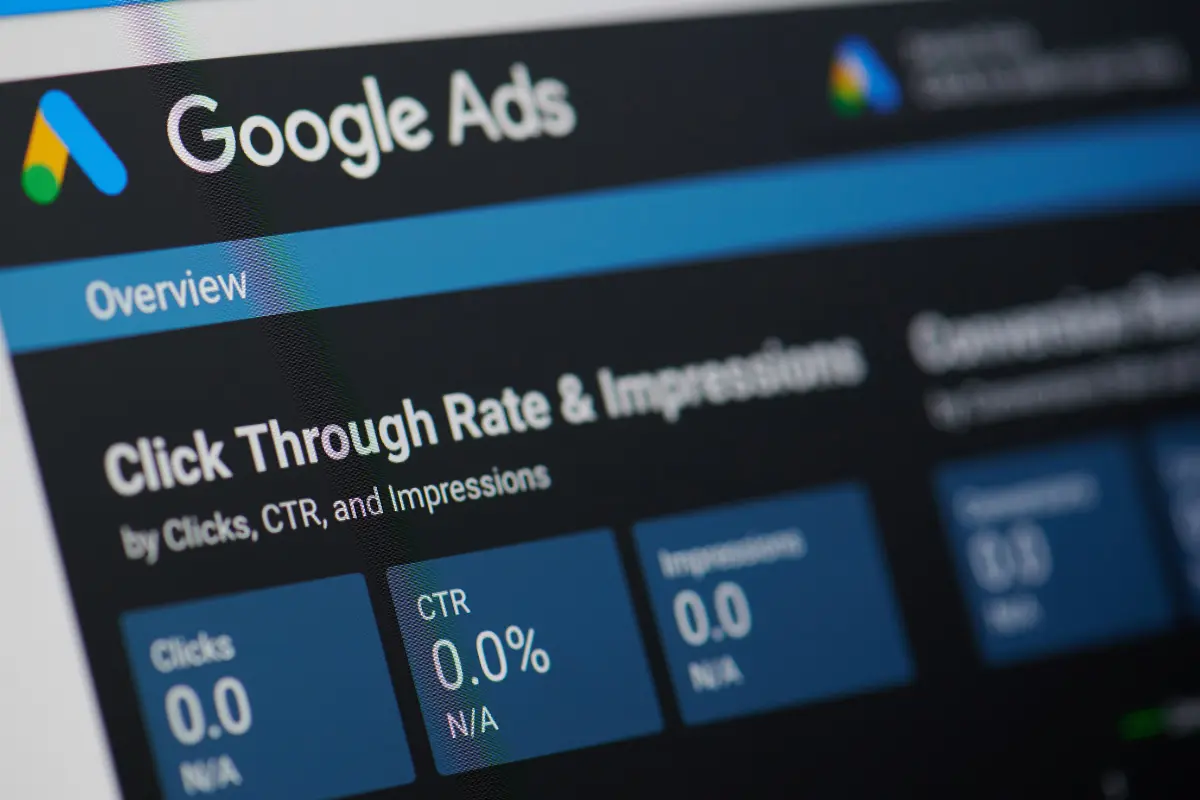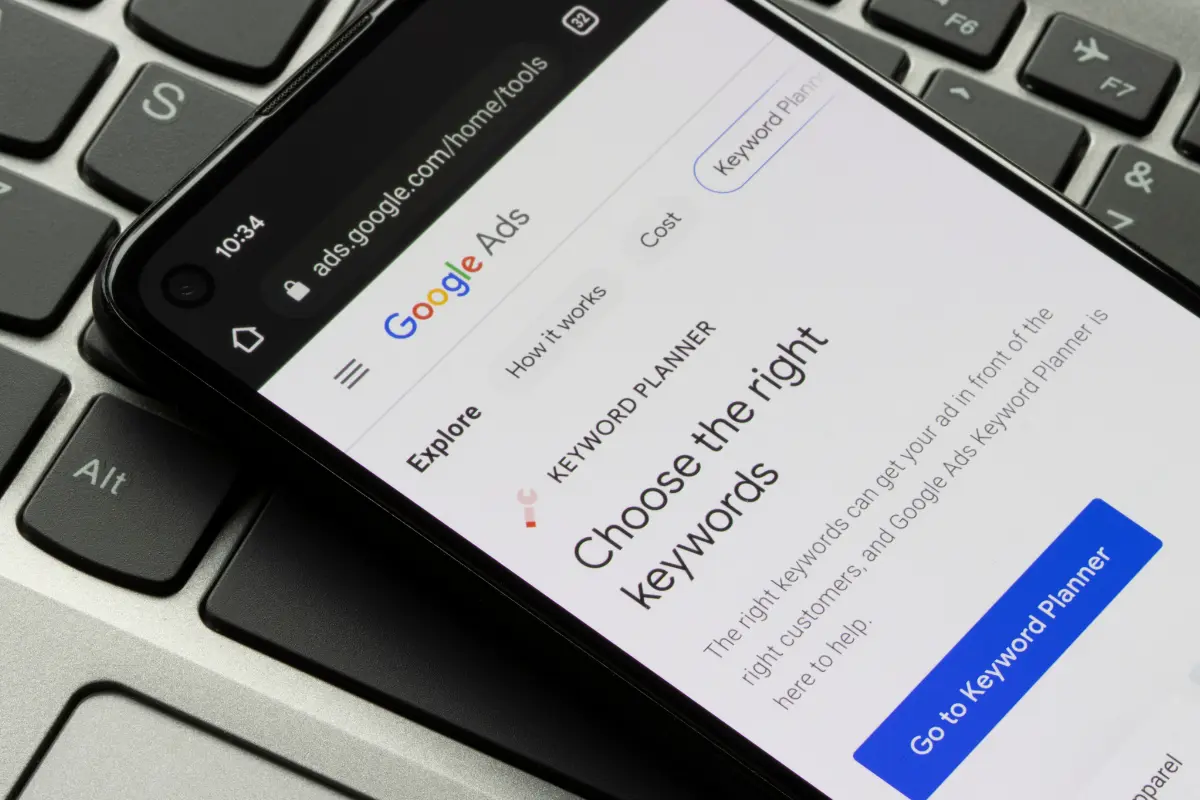There are many benefits to PPC and it’s a channel that if done correctly can generate incredible returns. The starting point of any PPC campaign begins with keywords, which is what we’ll be exploring in this post.

What are PPC keywords?
Keywords are the foundation of PPC (pay-per-click) and are one of the most critical parts of any campaign. Depending on your campaign type, the keywords you identify and select will determine when and where your ads show.
Types of Keywords
Brand Keywords
Brand keywords are keywords that contain your brand name within them, for example, “Arise digital marketing agency”. Depending on your industry, these keywords tend to have less competition and are usually cheaper.
Competitive keywords
Competitive keywords are keywords that are more generic and focus on the services and products that you’re promoting. For example, “digital marketing”. These competitive keywords normally have greater competition and can be more expensive than brand keywords.
What is a PPC keyword match type?
Just because you’ve got the keyword “digital marketing agency” doesn’t necessarily mean that your ads will only show for that specific search. This depends on the match type you’re using as to what variation of your keywords your ads show for.
There are 3 different match types available which are crucial to understand, otherwise, you could be wasting valuable budget on irrelevant searches.
Broad match
Broad match is an extremely simple, generic keyword match type that you’ll find Google encouraging you to use.
If you’re using broad match, ads may show on searches related to your given keywords, however, these could be searches that don’t even include your specified keywords if Google deems them ‘relevant’.
For example, if your broad match keyword is ‘low-carb diet plan’, your ads may show for searches like: ‘carb-free foods’, ‘low-calorie recipes’, ‘Mediterranean diet books’ and so on.
It’s vital that if you’re using broad match, you have populated a substantial negative keyword list and are regularly monitoring your search term report for relevancy. We’ll discuss negative keywords and search terms later in this article.
Phrase match
Phrase match keywords will display ads on searches that include the ‘meaning’ of your keyword.
Google states that the meaning of the keyword can be implied, and user searches can be a more specific form of the meaning.
A phrase match is essentially the middle ground between a broad match and an exact match. Here, you have more control than a broad match, but still less control than an exact match.
For example, if your phrase match keyword is “tennis shoes”, your ad may show for “shoes for tennis”, “red tennis shoes” or “comfortable tennis sneakers”. However, with phrase match, it won't show for “tennis rackets and training shoes” or “can you wear running shoes for tennis?”.
Similarly, as with a broad match, is important to have a substantial negative keyword list populated and that you’re also regularly monitoring your search term report for relevancy.
Exact match
With exact match keywords, your ads may show on searches that have the same meaning or same intent as the keyword.
For example, if your exact keyword is [shoes for men], then your ads may show on searches such as ‘shoes men’, ‘mens shoes’, and ‘shoes for a man’, but it wont show for ‘shoes for boys’ or ‘mens tennis shoes’.
Negative keywords have less importance here, however, it’s still best practice to have a list built before you launch your campaign, and to ensure you’re monitoring search terms to confirm they’re still relevant.
What are negative keywords in PPC?
Negative keywords are excellent for when you want to guarantee that your ads are NOT showing for specific searches.
For example, if you have a campaign that’s targeting competitive keywords like “digital marketing” and you want to exclude terms such as “careers” from being targeted, you’d do this using negative keywords.
Utilising negative keywords is a great way to save budget and ensure that you’re only paying for relevant clicks.
Negative keyword best practice
It’s best practice to populate a negative keyword list before you publish your campaign, but keep this topped up as your campaign is running (we’ll cover more on this when we look at search terms).
How to add negative keywords
To access negative keywords per campaign, select your campaign in the left-hand toolbar, click keywords and then negative keywords. You can then add keywords and select either the campaign or the ad group you want them to apply for. Just remember to choose your match type.
Another way to add negative keywords is through the shared library. Choose tools and settings, then under shared library, click on negative keyword lists. Here, you can create lists and apply them where you wish.

What are search terms in Google Ads?
As mentioned above, the keywords that you provide aren’t necessarily what users are searching for. These exact searches are called Search Terms. Search terms provide useful insight into the exact searches that trigger your ads.
The search term report is a good way to discover new relevant keyword ideas that you can add to your campaign. It’s also a good way to trim out anything that’s irrelevant, and then add it to your negative keyword list.
What’s the difference between a search term and a keyword?
As Google states, a search term is a word or phrase that a person enters when searching on Google. Whereas, a keyword is a word or phrase that advertisers can target.
How do I access the search term report?
To access this report, click your campaign name in the left-hand toolbar, click keywords and then search terms.
You can then tick the checkbox next to a specific search term and choose whether to add it as a keyword or a negative keyword - just remember to double-check/ change the match type if necessary.
How to choose PPC keywords?
Choosing the right keywords for your PPC campaign is essential to ensure you’re serving ads to the right people.
To begin with, you’ll need to identify the desired structure of your campaigns and ad sets, and then which products or services you’ll be promoting.
You’ll then want to identify what people are searching for discovering metrics such as search volumes, competition and cost. This can be done using keyword research tools.
Keyword research & keyword discovery
Keyword research done properly can make a huge impact on your PPC campaigns.
What is keyword research and why is it important?
Keyword research is the process of building a list of PPC keywords that are both relevant and valuable to your business and the goals you want your campaign to achieve.
The importance of this step can’t be overstated. Thorough keyword research can help you produce more targeted ads, create relevant landing pages, increase conversions and improve your overall ROI.

Keyword research tools
There are a variety of keyword research tools out there, and it probably comes down to personal preference. We’ve outlined a few of the more popular methods below.
Google Keyword Planner
Within the Google Ads interface, you have Google’s Keyword Planner, and it’s absolutely free.
Split into two main sections, Google’s Keyword Planner allows you to generate keyword ideas and then build forecasts for your campaigns.
Similarly to the other tools, you’ll read about, you can identify search volumes, competitions, ad impression shares and bid ranges.
SEMRush
SEMRush is a highly advanced piece of kit that allows you to perform detailed keyword research.
Whether you’re using the Keyword Magic Tool for exploratory keyword research, or competitive keyword analysis, it’s a great tool for the task.
They also have a handy PPC Keyword Tool which allows you to find the best keywords based on CPC, volumes and other metrics and then build keyword lists directly in the tool.
Moz Keyword Explorer
Moz is extremely well-known in the world of search and they have a number of different tools specially designed for keyword research.
Their Keyword Explorer tool enables you to discover volumes, difficulties and more metrics for specific keywords. You can also use their Keyword Gap feature to identify gaps that your competitors may be filling.
Other providers
Other keyword tools worth mentioning include AHrefs, QuestionDB and Keyword Surfer.
Other methods
You can also simply google your desired keywords and then check through the suggested searches and the ‘people also ask’ section. Here, you’ll then be able to discover potential new keywords as well as build out your negative keyword list.
You can also check out one of our recent posts which may help - Do keywords matter? How to find them and use them.
Conclusion
Now you know just how important keywords are for PPC campaigns. They help you to target the right audience and searches and help to improve your conversion rates.
If you need help with your PPC campaigns, check out the PPC Services that we provide, or get in touch with the team for some more information.